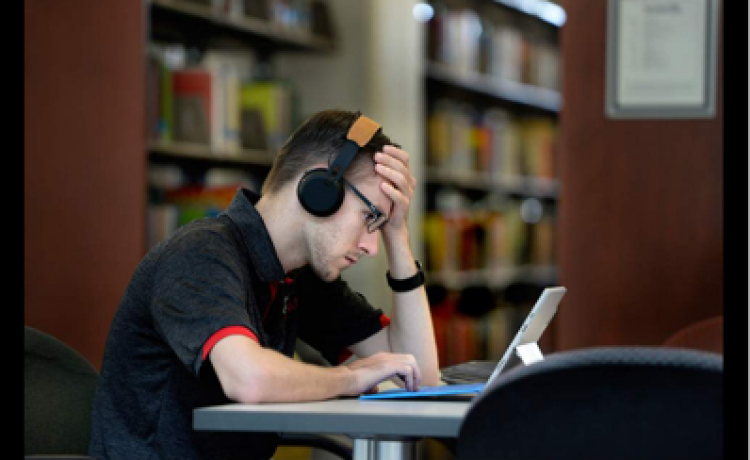Student Work

In example 2, pathogens such as bacteria, viruses and fungi all can cause pneumonia. What information does one need to predict if it is a bacterial pneumonia, when the blood culture of the pathogen is not available or the cultural timing is unreliable? I asked students to think specifically how much each of the following contributes to the sensitivity of diagnosing pneumonia: blood test (look for neutrophil or lymphocyte count), chest radiograph (look for infection patterns), Gram stain (positive vs. negative) and sputum or blood culture (bacteria vs. virus). This question was hard but generated productive class discussion.
Another example (example 3) is about differential diagnosing four types of leukemia. I provided four leukemia patient cases and asked students to discuss in groups; each group is made of 3-4 students. Students spent about 25 minutes working in groups. Afterwards, representative group members reported each case with respect to the diagnosis and provided supporting information to their claim. Students made correct diagnoses for leukemia types, but some group missed a couple of essential supporting information.
You can view the details of the three examples here.
Assessments
I have summarized student homework and exam averages in a table below. Data represent average ± SD.
Table 1. Student homework score averages
HW1 | HW2 | HW3 | HW4 | HW5 | HW6 | HW7 | HW8 | HW9 | HW10 |
88.4±4.6 | 87.6±3.9 | 89.4±4.1 | 84±4.3 | 86.4±6.8 | 78.7±5.0 | 95.2±2.9 | 90.1±3.1 | 84.3±6.4 | 76.9±5.3 |
Table 2. Student exam score averages
Exam 1 | Exam 2 | Exam 3 |
87.3±4.7 | 81.3±7.6 | 90.7±4.3 |
Midterm survey results
The mid-term survey results showed students learned a lot, in particular the case studies and their interest level remained high.
Student feedback
How helpful are the case studies in lecture and on the homework? Please explain your answer.
“The case studies in lecture and on the homework are pretty helpful because I have to apply most of the information I've learned. For the case studies, you must look at all the other information such as symptoms to figure out the disease/ illness (use context clues).”
“I think that the case studies really help apply the material learned to a real live example. This gives me another chance to think about and apply the material which is really helpful.”
“They are pretty helpful, especially for homework assignments. Case studies have clarified specific things for me.”
“I think they are very helpful and it’s great to have a discussion about them in class.”
“I love the case studies! Putting knowledge we’re taught into practice helps me understand the content because it reflects how each case can be different from one another and how they can be the same.”
Positive unsolicited emails:
“Thank you so much for an incredible year. I’m sorry the semester was cut short and we were unable to learn from you in the classroom, but I appreciate the effort you put in to teaching us remotely. Your pathophysiology class was fun and interesting and I enjoyed every second of it.”
“I have greatly enjoyed and benefited from your class Pathophysiology. I've grown a lot as a learner throughout this course, and I want to take the time to express my gratitude for you being an incredible guidance to this class.”
“I am travelling with my team and so I will not be able to attend class today. I'm really bummed that we will no longer have in-person class, I have really enjoyed the class this far! You have made the material interesting and easy to learn. Although switching to online lectures is not ideal, I am still looking forward to learning the rest of the material! Thank you for a great semester thus far.”
“My brother has had ulcerative colitis for the last 7 years so I am very appreciative that this is one of the diseases we’ve gotten to learn about. We don’t really talk about it very often so there was a lot I was able to learn. Hope you are maintaining your health and are otherwise well in these odd conditions. Two thumbs up for the lectures; I’m sure the transition you’ve made wasn’t easy but it’s been great so far.”
“Thank you for having me as your undergraduate teaching assistant (UGTA), I enjoyed learning pathophysiology in more depth and helping students learn a subject I love. My plan after graduation is to move back home to Pennsylvania and work at a local hospital. I will also be applying to Physician Assistant programs in hopes of attending graduate school Fall 2021. Thank you again for giving me this opportunity, I had a great time and learned a lot!”

